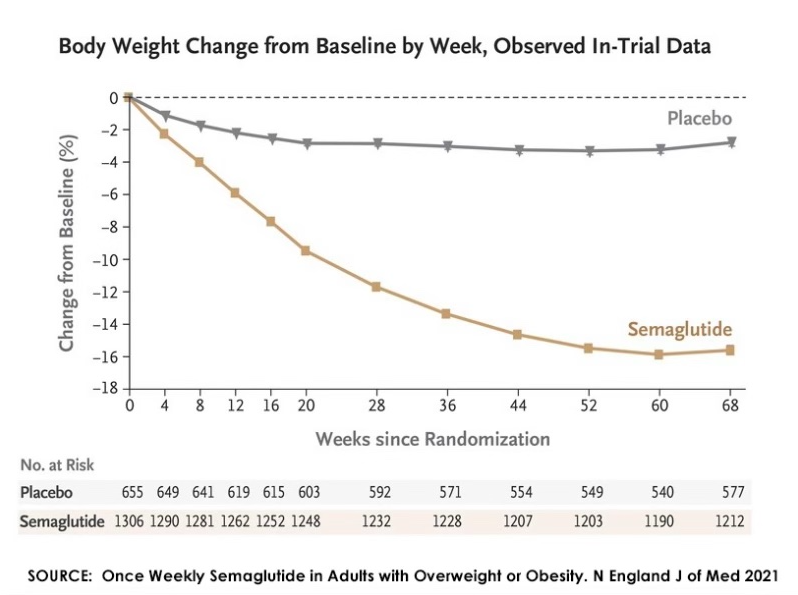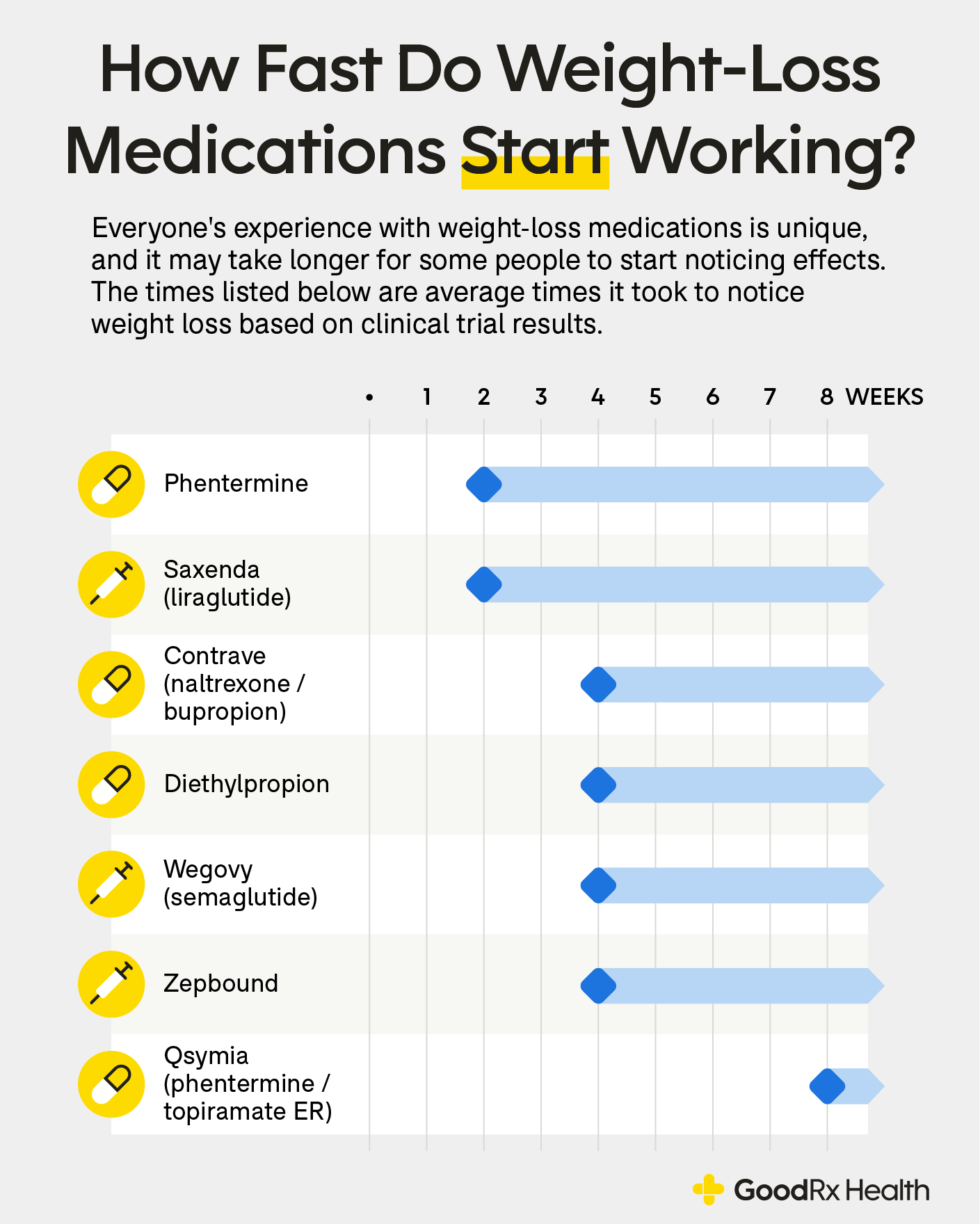To obtain Semaglutide for weight loss, consult a healthcare provider for a prescription. Ensure eligibility with a medical assessment before starting treatment.
Semaglutide, a medication initially designed for type 2 diabetes, has shown promising results in aiding weight loss. Physicians typically prescribe it after assessing the patient’s health status and confirming that it fits their medical needs. Obtaining Semaglutide involves a simple yet critical process, where you engage with a healthcare professional to evaluate your suitability.
Due to its regulatory approval specifically for chronic weight management in adults with obesity or overweight, it’s essential to get a thorough check-up. This ensures that the treatment aligns with your individual health profile and weight loss goals. By prioritizing safety and adherence to medical guidelines, patients can explore the benefits of Semaglutide as part of a comprehensive weight management plan.
Semaglutide In The Weight Loss Context
Obesity has met its match with a promising medication called Semaglutide. Let’s explore what makes Semaglutide a game-changer in weight loss efforts.
What Is Semaglutide?
Semaglutide is typically known for managing type 2 diabetes. It falls under the drug category of GLP-1 agonists. These drugs mimic a natural hormone in the body. Doctors can prescribe Semaglutide to help you lose weight if you meet certain conditions.
The Role Of Glp-1 Agonists In Weight Management
GLP-1 agonists, like Semaglutide, are breakthroughs in weight management. They work by:
- Suppressing appetite: This makes you feel full longer.
- Slowing down digestion: Your stomach empties more slowly.
- Regulating blood sugar: They keep your sugar levels stable.
This trio of actions supports sustainable weight loss. You need to have a prescription to get Semaglutide. A healthcare provider can help determine if it’s right for you.

Credit: balancedmedicalsolutions.com
Clinical Evidence Supporting Semaglutide
Semaglutide has gained attention in the weight loss community due to convincing clinical evidence. This bodes well for those seeking medical support to manage obesity. The advent of semaglutide as a promising weight loss medication springs from robust clinical trials.
Key Studies And Results
Several studies highlight semaglutide’s effectiveness for weight loss.
- The STEP-1 trial revealed participants lost an average of 14.9% body weight.
- STEP-2 showed a 9.6% weight reduction in type 2 diabetics.
- In STEP-3, lifestyle interventions combined with semaglutide led to a 16% loss.
These results consistently demonstrate semaglutide’s potential in weight management therapy.
Understanding The Long-term Benefits
Long-term weight loss often predicts a healthier and more sustainable lifestyle. Semaglutide may contribute to significant and enduring weight reduction. Sustained use has shown a consistent weight decrease with manageable side effects.
| Study | Duration | Average Weight Loss |
|---|---|---|
| STEP-4 | 68 weeks | 17.4% |
| SUSTAIN-6 | 2 years | Maintenance of reduced weight |
Long-term studies like STEP-4 and SUSTAIN-6 suggest semaglutide can maintain reduced body weight over time.
Eligibility Criteria For Semaglutide Use
Before diving into the world of semaglutide for weight loss, it’s crucial to understand who can safely use it. Specific criteria determine suitability, ensuring effective and safe weight management. Let’s explore these requirements.
Assessing Your Suitability
Consulting with a healthcare professional is the first step to assess if semaglutide fits your weight loss journey. An initial evaluation includes a discussion of your weight history, current health status, and any previous weight management attempts. This conversation paves the way for a tailored approach.
Health Conditions That Influence Eligibility
Certain health conditions can affect eligibility for semaglutide. Providers assess these conditions thoroughly before prescribing. Key aspects include:
- Body Mass Index (BMI): Typically, a BMI of 30 or higher, or 27 or higher with weight-related conditions, qualifies you.
- Existing health conditions: Common concerns such as heart diseases, diabetes, or high blood pressure may influence decisions.
- Medication check: Semaglutide could interact with other medicines. It’s important to vet current medications with your doctor.
| Criteria | Detail |
|---|---|
| BMI | 30+ (or 27+ with additional weight-related conditions) |
| Health Status | No critical heart conditions or unmanaged diabetes |
| Medication Interference | Review with doctor for potential interactions |
Matching the outlined eligibility requirements increases the likelihood of achieving safe and effective weight loss, making semaglutide a potential ally in your health journey.
Consulting A Healthcare Provider
Embarking on your weight loss journey with semaglutide takes a critical step: Consulting a Healthcare Provider. This crucial move not only ensures safety but tailors the treatment to your unique needs. As semaglutide is a prescription medication, a doctor’s assessment and guidance are indispensable. Let’s navigate the key phases for getting started.
Setting Up The Initial Appointment
Making the first move towards better health starts with an initial appointment. Reach out to your healthcare provider via phone or online platforms. Many offices provide easy scheduling options to cater to your convenience. Be ready with your calendar to pick a date and time that works best for you. Remember, this appointment lays the groundwork for your weight loss plan with semaglutide.
What To Discuss With Your Doctor
The conversation with your doctor is a golden opportunity to pave the way for success. Prepare to discuss your:
- Weight loss goals: Be clear about your expectations.
- Medical history: Openly share your health background for a comprehensive assessment.
- Current medications: Inform your doctor about any drugs you’re taking to avoid interactions.
- Lifestyle: Your daily habits influence the effectiveness of semaglutide.
During the appointment, your doctor will evaluate if semaglutide fits your weight loss plan. Questions regarding the drug’s impact, side effects, and administration process are vital. Understanding every aspect will help you make an informed decision.
Navigating The Prescription Process
Semaglutide offers a promising way to manage weight. Before starting, getting a prescription is key. This involves consulting a healthcare provider and discussing your weight loss goals and medical history. Here’s a guide to navigate through this journey.
Obtaining the PrescriptionObtaining The Prescription
To start the process, find a doctor experienced in weight management. During your visit:
- Discuss your weight loss history.
- Talk about your lifestyle and diet.
- Undergo a medical exam if needed.
- Ask questions about Semaglutide.
The doctor will assess if Semaglutide suits you. This depends on your Body Mass Index (BMI) and any health conditions. If you qualify, they will write you a prescription.
Insurance Coverage and CostsInsurance Coverage And Costs
Costs can differ based on your plan. Check with your insurer about:
- Coverage for weight loss medication.
- Your out-of-pocket cost for Semaglutide.
- Any prior authorization needed.
| Insurance Status | Estimated Cost |
|---|---|
| With Insurance | Varies by plan |
| Without Insurance | $800 to $1000 per month |
If your insurance doesn’t cover it, ask about patient assistance programs. There may be options to help reduce the costs.
Incorporating Semaglutide Into Your Routine
When starting semaglutide for weight loss, following a doctor’s plan is crucial. It requires understanding dosage, managing side effects, and consistency. This ensures the journey toward reaching your weight goals is both effective and safe.
Dosage And Administration
Starting with the correct dosage is key. A healthcare provider will assess your health before prescribing semaglutide. They will suggest a dosage plan tailored for you.
- Begin with a low dose. Doctors commonly start treatment with a lower dose of semaglutide. This helps your body adjust.
- Gradual increase is common. Over time, the dose may increase based on your response to the medication and doctor’s advice.
- Take it once a week. Semaglutide is an injectable medication typically administered once a week.
Read instructions carefully. Make sure to understand the administration technique. The doctor or nurse will guide you on how to inject semaglutide correctly.
Managing Side Effects
Know potential side effects. Common ones include nausea, diarrhea, and vomiting. Your body may need time to adapt to semaglutide.
| Side Effect | Tips to Manage |
|---|---|
| Nausea | Eat small, bland meals and drink clear liquids. |
| Diarrhea | Stay hydrated and consider an electrolyte solution. |
| Vomiting | If persistent, contact your healthcare provider. |
Stay in touch with your doctor. Report any persistent or severe side effects to your healthcare provider promptly. They might adjust your dosage or schedule.
Lifestyle Considerations While Using Semaglutide
Semaglutide can be a game-changer for weight loss. But it’s not a magic pill. Your daily habits play a big role in your success. Pairing Semaglutide with the right lifestyle choices boosts its effectiveness. Let’s explore the dietary and exercise tips to follow while using this medication.
Dietary Recommendations
Eating right is crucial. Semaglutide works best with a healthy diet. Consider these food tips:
- Choose whole foods like fruits, veggies, lean proteins, and whole grains.
- Limit processed foods and sugars.
- Stay hydrated; drink plenty of water.
- Monitor portions to avoid overeating.
Smart eating supports Semaglutide’s weight loss effects.
The Importance Of Exercise
Moving your body is key. Exercise helps Semaglutide in multiple ways:
- Burns calories to aid weight loss.
- Boosts heart health.
- Improves muscle strength and endurance.
Start with gentle activities like walking or swimming. Gradually increase intensity for better results.
Monitoring Your Progress
Monitoring your progress when on Semaglutide for weight loss is vital. It helps you keep track of your journey. You watch how your body changes. You also see if the treatment works well. It’s like taking notes during a science experiment. You’ll want to keep good records. This will guide your decisions in the future.
Tracking Weight Loss
Tracking weight loss is a clear way to measure changes. Use a weekly log. Write down your weight every week. This helps see patterns. A digital scale can give you accurate readings. Keep a graph or chart. This will show your progress over time. A table can help you organize your data:
| Week | Weight | Notes |
|---|---|---|
| 1 | 200 lbs | Beginning treatment |
When To Evaluate Treatment Efficacy
Evaluate treatment efficacy after a set time. Doctors often suggest 12 weeks. This is when you should see changes. Track your measurements, like waist size. Note any side effects. Share all with your doctor. Your doctor will discuss the results. They will adjust treatment if needed.
- Check weight loss against initial goals
- Assess overall health changes, such as energy levels
- Discuss with your doctor
Alternatives And Complementary Treatments
Exploring alternatives to Semaglutide for weight loss is critical for a personalized health strategy. Many patients discover that combining treatments can offer better results. Let’s delve into other medications and novel options that complement Semaglutide’s effects.
Exploring Other Medications
There are various prescriptions available that support weight loss. They work differently. Some reduce appetite. Others limit fat absorption. Review them with a healthcare professional.
- Phentermine: Suppresses appetite; for short-term use.
- Orlistat: Blocks fat breakdown; minimizes fat absorption.
- Bupropion-Naltrexone: Controls cravings; improves control over eating.
Considering Surgery And Natural Supplements
| Procedure | Effectiveness | Risk Level |
|---|---|---|
| Gastric Bypass | High | Considerable |
| Sleeve Gastrectomy | Medium to High | Moderate |
Natural supplements might offer weight loss benefits.
- Green Tea Extract: Boosts metabolism.
- Glucomannan: Expands in the stomach; promotes fullness.
- Conjugated Linoleic Acid: Reduces fat deposition.
Assess the evidence and consult a healthcare provider before starting any supplement regimen.

Credit: brandonmedicalcenter.com

Credit: www.goodrx.com
Frequently Asked Questions
How Do I Get A Semaglutide Prescription For Weight Loss?
Consult a healthcare provider to discuss your weight loss goals and determine if semaglutide is suitable for you. They can prescribe it after evaluating your medical needs.
Can You Buy Semaglutide For Weight Loss?
Yes, you can buy semaglutide for weight loss, but it requires a prescription from a healthcare professional. Always consult a doctor before starting treatment.
How Do I Get Semaglutide For $25 A Month?
To obtain semaglutide for $25 a month, check with the manufacturer for savings programs or contact your insurance provider about coverage. Alternatively, research discount cards and pharmacy comparisons online. Always consult your doctor for guidance on medication affordability.
How Much Do You Have To Weigh To Get Semaglutide?
Semaglutide is not prescribed based on weight alone. Doctors consider factors like diabetes type 2 and cardiovascular conditions. Always consult a healthcare provider for eligibility and dosage.
Conclusion
Embarking on your weight loss journey with semaglutide starts with informed choices. Your healthcare provider is the key to a tailored plan. They’ll ensure this medication fits your health profile. Remember, it’s a piece of the puzzle, alongside diet and exercise.
Start your conversation with a professional today and take a step towards a healthier you.










